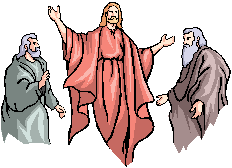In December 2011, I made a presentation, part of which covered the topic, “My Spiritual Journey or How I Became an Orthodox Jedi.”
The journey was 43 years in the making and focused on the question whether one could be both spirtual and agnostic. While I admit religious organizations do good deeds in the name of their gods, I believe, as did Christopher Hitchens, there is no need to attribute the desire to do good to some mythical being or for some reward in the afterlife. I have the power to do good deeds because it is the right thing to do.
Of more concern are the number of cruel and unacceptable acts committed in the name of religion. Or how a loving and compassionate god allows such acts. Barbaric wars and persecutions are bad enough. But when a score of innocent children are slaughtered while attending school, I cannot believe this is any god’s plan.
Much of this dysfunction is due to the absolute nature of religion. Consider the following passages from the New Testament, Old Testament and Koran.
John 14:6 — “I am the way and the truth and the life. No one comes to the Father except through me.”
Exodus 19:5 — “Now therefore, if you will obey my voice indeed, and keep my covenant, then you shall be a peculiar treasure unto me above all people.”
Shahada — “There is no God but Allah.”
They cannot all be right. Therefore, one must question whether any of them are right. And I am not alone. Consider the following.
Atheist Penn Jillete in his book God, No! — “You don’t have to be brave or a a saint, a martyr, or even very smart to be an atheist. All you have to be able to say is, ‘I don’t know.'”
Rabbi Mordecai Kaplan, founder of the Jewish Reconstructionist Movement — “A religion is as much a progressive unlearning of false ideas concerning God as it is the learning of true ideas concerning God.”
In the movie Contact, when apologizing that he and not Ellie Arroway, who discovered an extraterrestrial message, would be the passenger on a transport described in the transmission, David Drumlin says, “I wish the world was a place where fair was the bottom line, where the kind of idealism you showed at the hearing was rewarded, not taken advantage of. Unfortunately, we don’t live in that world.” Arroway, disqualified for her agnostic views, replies, “Funny. I’ve always believed the world is what we make of it.”
And finally, master Jedi Obi-Wan Kenobi — “The Force is what gives a Jedi his power. It’s an energy field created by all living things. It surrounds us and penetrates us. It binds the galaxy together.”
Obi-Wan suggests we have a choice. Think about computing power. We can either believe that everything must go through a central server of enormous power. Or we can believe that the power is distributed much the way Skype draws on the computer power of millions of individually owned computers, tablets and smartphones. I prefer this latter view. But I will not try and convince you of my perspective because “I don’t know.”
For what it’s worth.
Dr. ESP

